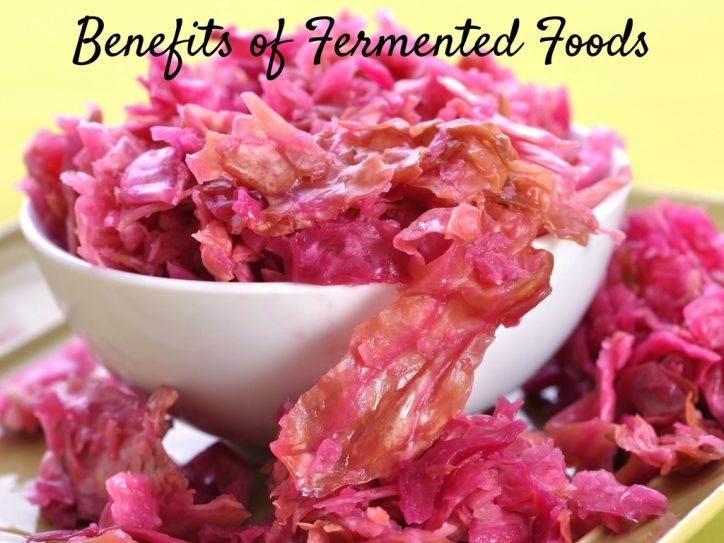Benefits of Fermented Foods
Fermented foods have made a comeback recently. Foods like sauerkraut and kimchi are finding a new audience these days! I love sauerkraut, it must be part of my german heritage!! hahaha.
Research on fermented products showing their benefits on gut, brain, and body health have brought about an increased interest. The fermentation process promotes essential bacteria such as Lactobacilli and Bifidobacteria. This makes fermented foods a good source of probiotics for vegans, since many fermented foods are plant based.
What Are Fermented Foods?
Fermented foods go through a process of fermentation where natural bacteria feed on the sugar and starch in the food creating lactic acid. This process not only preserves the food; it creates beneficial enzymes, b-vitamins, Omega-3 fatty acids, and various strains of probiotics.
Natural fermentation has also been shown to preserve nutrients and break the food down to a more digestible form. This, along with the amount of probiotics created in the process, explains why consuming fermented foods improves digestion.
Where Have Fermented Foods Gone?
The amount of probiotics and enzymes available in a natural diet has declined significantly over the last several years as pasteurized milk has replaced unprocessed, pasteurized yogurt has replaced homemade, and vinegar based pickles and sauerkraut have replaced traditional fermented versions.
Instead of the nutrient rich foods full of enzymes and probiotics that were available decades ago, the average diet today consists mostly of sugar-filled, processed foods.

Why Eat Fermented Foods?
Probiotics– Eating fermented foods and drinking fermented beverages like Kefir and Kombucha will provide beneficial bacteria for your digestive system. Probiotics have also been shown to help slow or reverse some diseases, improve bowel health, and improve digestion and immunity.
Absorb Food Better– Having the proper balance of gut bacteria and plenty of digestive enzymes helps you absorb the nutrients in the foods you eat. Pair this with your real food diet and you will be better able to absorb more nutrients from what you eat. You won’t need as many supplements.
Budget Friendly– Adding more healthy foods to your diet can get expensive, but that’s not the case with fermented foods. Drinks like Kefir and Kombucha can be made easily at home and cost only pennies per serving. Adding fermented foods to your diet can also cut down on the number of supplements you need to purchase.
Easily Preserve Food– Homemade salsa usually only lasts a few days, but fermented homemade salsa will last for months. The same goes for sauerkraut, pickles, beets and other foods from your garden. Fermentation allows you to store these foods longer without losing vital nutrients like you would with traditional canning.
How to Incorporate Fermented Foods Into Your Diet
On a basic level, you can make foods like sauerkraut with just cabbage, water and salt on your countertop. You can also incorporate fermented drinks like Kefir and Kombucha which are inexpensive to make and can be carbonated just like soda or tonic water. Plus if you don’t care to make them, they are available in most grocery stores.

Leave a Reply